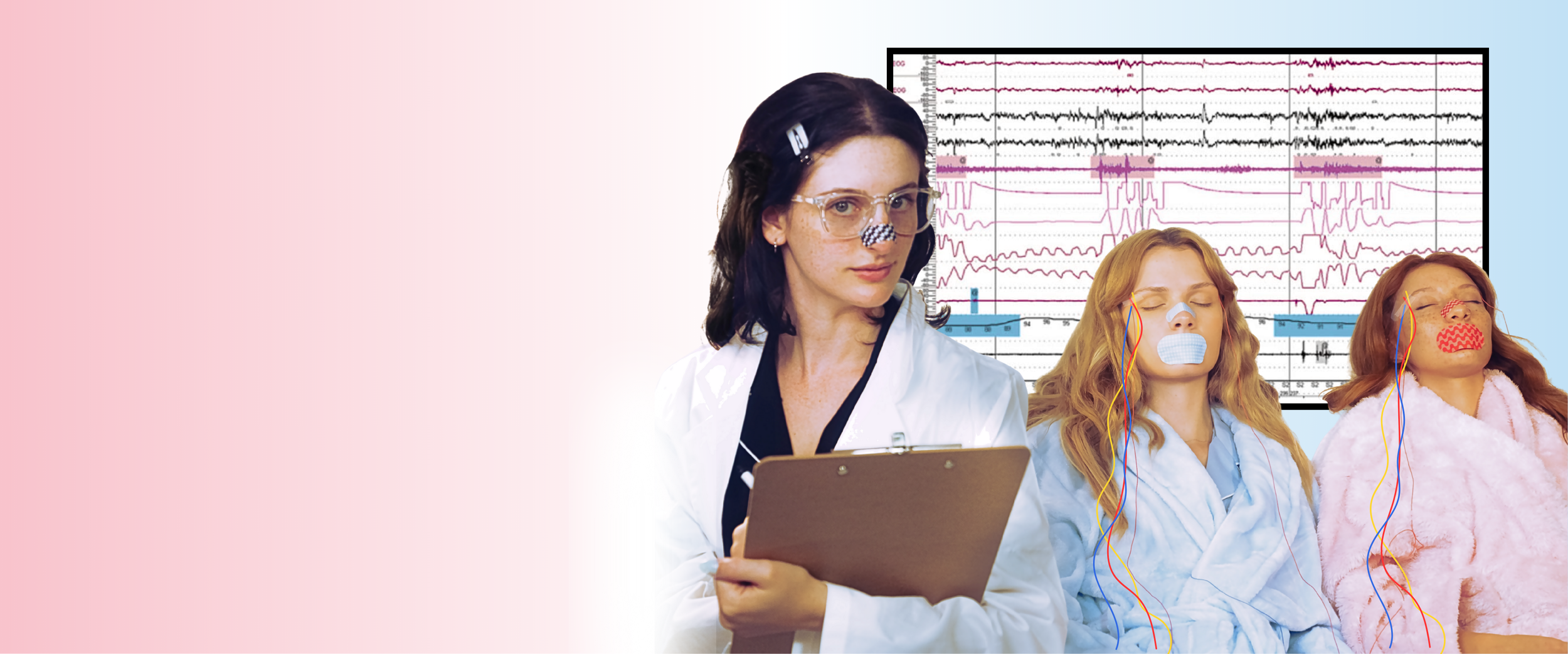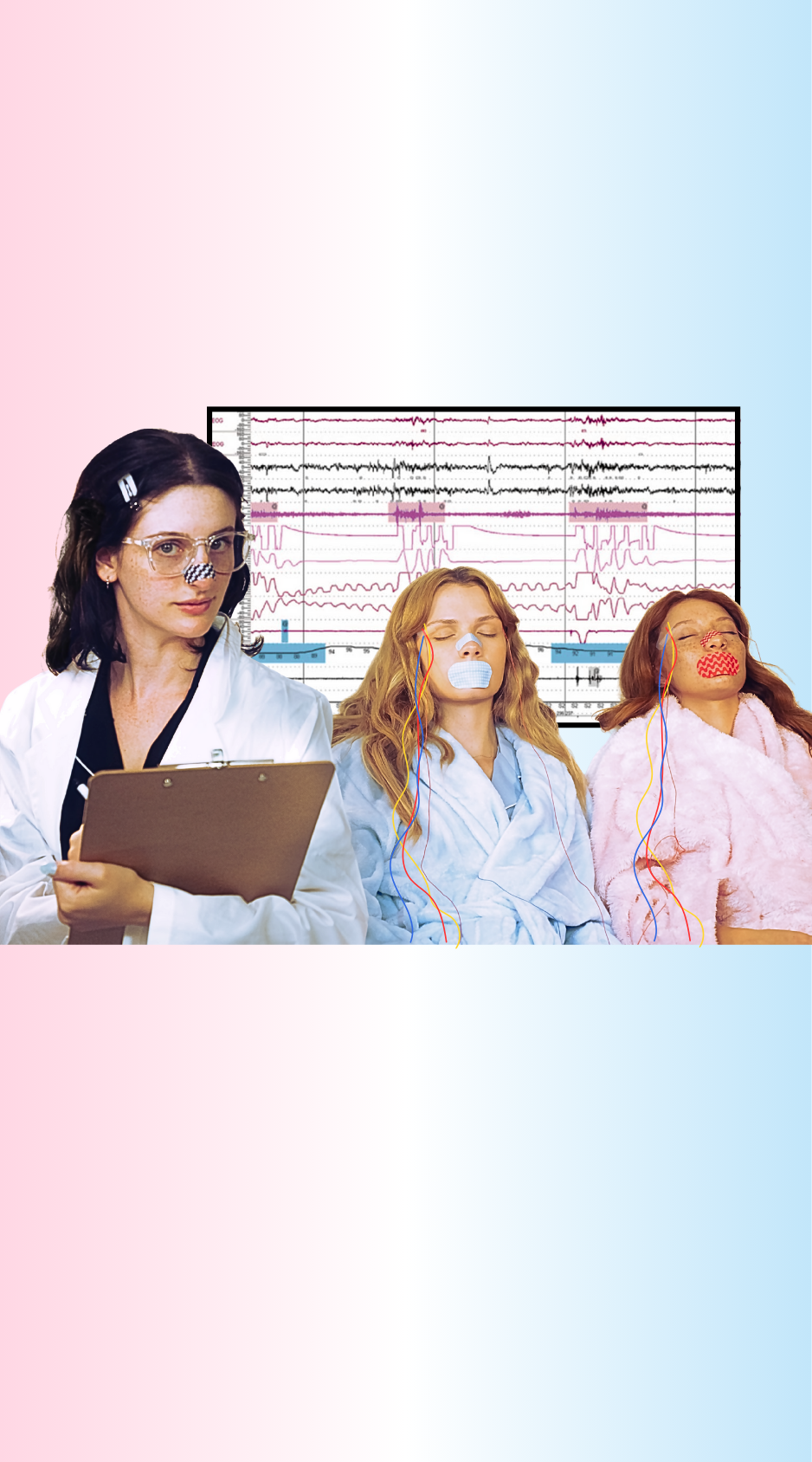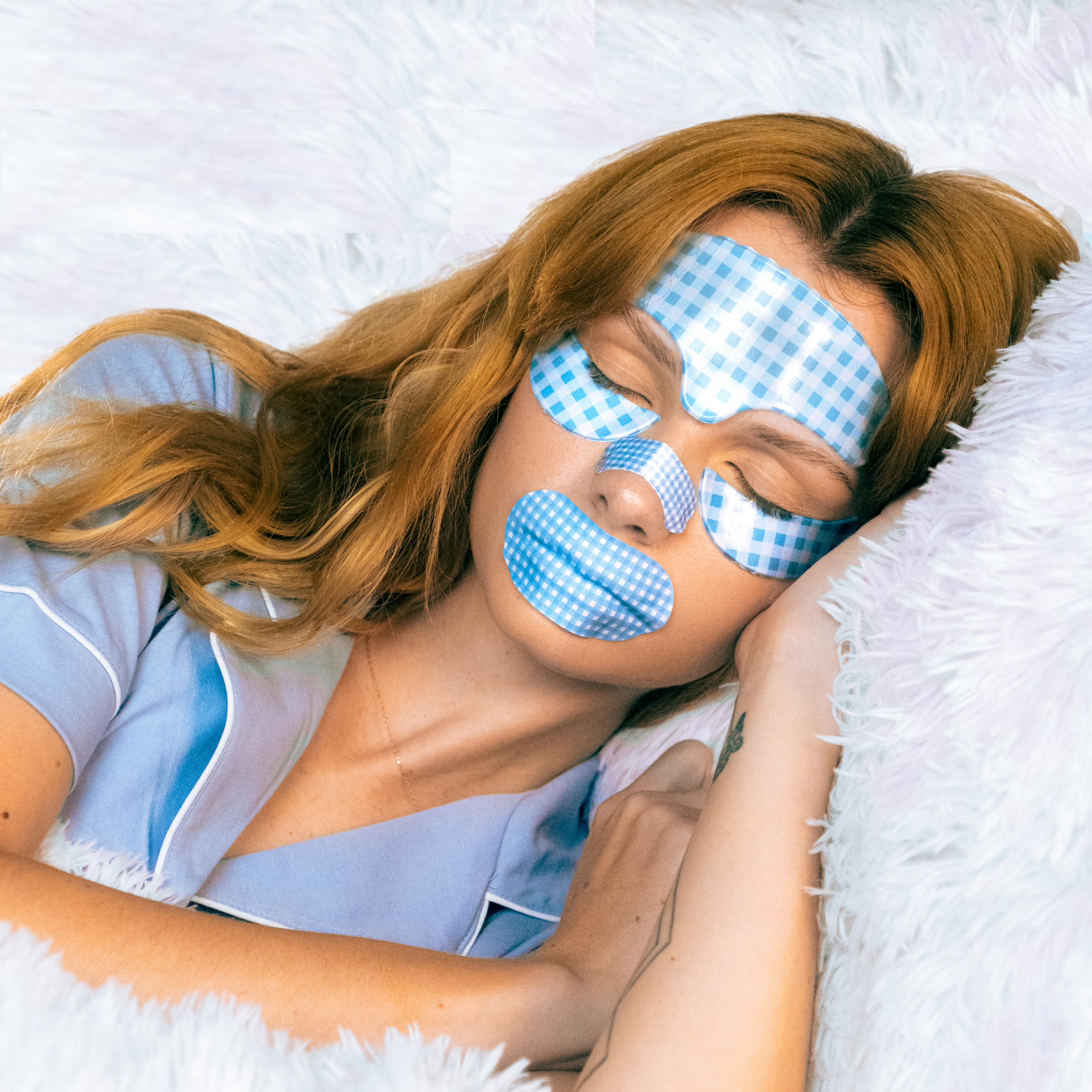

Science Sh*t for Science People
How occlusive materials, skin permeability, and nasal airflow contribute to real overnight changes in skin and sleep quality.
THE UGLIER YOU GO TO BED, THE PRETTIER YOU WAKE UP
THE UGLIER YOU GO TO BED, THE PRETTIER YOU WAKE UP
THE UGLIER YOU GO TO BED, THE PRETTIER YOU WAKE UP
THE UGLIER YOU GO TO BED, THE PRETTIER YOU WAKE UP
THE UGLIER YOU GO TO BED, THE PRETTIER YOU WAKE UP
THE UGLIER YOU GO TO BED, THE PRETTIER YOU WAKE UP
we didn't just make shit up
read all about the real science behind ugly sleep club below
Key Finding: Mouth-taping during sleep improved snoring and the severity of sleep apnea in mouth-breathers with mild OSA, with AHI and SI being reduced by about half.
Study: "Effect of Nasal or Oral Breathing Route on Upper Airway Resistance During Sleep"
Key Finding: This study assessed how breathing route (nasal vs. oral) affects upper airway resistance during sleep. Results demonstrated that upper airway resistance was significantly lower during nasal breathing compared to oral breathing.
Note: While studies show potential benefits, it's essential to consult with a healthcare provider before trying mouth taping, especially if you have existing respiratory or sleep conditions.
Study: "Effects of Nasal Dilator Strips on Subjective Measures of Sleep"
Key Finding: This randomized, placebo-controlled study found that nasal dilator strips significantly improved nasal congestion and sleep quality in people with chronic nighttime congestion.
Key Finding: Using an airflow measurement device, this study found that nasal strips significantly reduced resistance during both inhalation and exhalation. The data supports the idea that nasal strips mechanically improve nasal airflow, making breathing easier for users.
Study: "Antiwrinkle Effect of Topical Adhesive Pads on Crow's Feet: How Long Does the Effect Last?"
Key Finding: This study evaluated the effects of adhesive silicone pads on crow’s feet wrinkles. Results showed a significant reduction in skin roughness and fine lines shortly after application.
Study: "The Use of Silicone Adhesives for Scar Reduction"
Key Finding: Silicone-based occlusive dressings improved skin hydration, elasticity, and barrier function by reducing transepidermal water loss (TEWL).
Study: "Effects of Silicone Gel Sheet on the Stratum Corneum Hydration"
Key Finding: This study found that silicone gel sheets increase hydration in the stratum corneum (the outermost layer of the skin) by forming an occlusive barrier. This helps retain moisture, which can lead to improved skin texture and elasticity over time
$74.95
-$124.80
A 30-day supply of mouth tape, nose strips, two under eye masks, and two forehead masks. Everything you need to sleep ugly.
SHOP NOW
$55.95
-$104.85
A 90-day supply of collagen-infused mouth tape, 1 month of each pattern, for three months of better breathing & improved sleep.
SHOP NOW
$54.95
-$61.90
A 30-day supply of collagen mouth tape and nose strips to support nasal breathing and promote deeper, higher quality sleep.
SHOP NOW
$44.95
-$65.90
Reusable silicone mask set with two pairs of under eye masks & two forehead masks to help serums absorb and smooth overnight.
SHOP NOW
$34.95
Includes a 30 day supply of collagen & vitamin infused mouth tape to support nasal breathing and help your skin stay hydrated.
SHOP NOW
$32.95
Includes 2 pairs of reusable silicone under eye masks that visibly reduce puffiness and fine lines for a smoother, more rested look.
SHOP NOW
$29.95
Includes 2 reusable forehead masks made of medical-grade silicone to help smooth fine lines and lock in moisture while you sleep.
SHOP NOW
$26.95
A 30-day supply of supportive, flexible nose strips that open your airways and help you breathe clearer throughout the whole night.
SHOP NOW















































































































